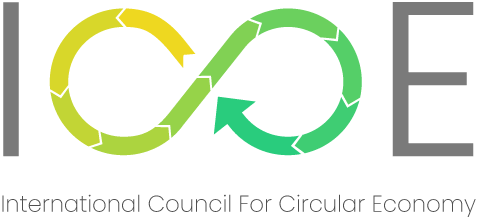
The fashion industry needs a permanent makeover. To move it away from its polluted past towards a regenerative future. Which means ditching its regressive ‘take-make-waste model’ of doing things and shifting to circular practices that can make it an exemplar of sustainability. For that transformation to happen startups and companies working in the industry need to accelerate innovations that are designed to pave the way for this.
Fashion for Good is a global platform and initiative dedicated to supporting and showcasing ecosystems that are leading the transformation. And it announced this week that 10 new innovators that have been selected to join its South Asia Innovation Programme.
“After five months of rigorous scouting and screening, we’ve selected innovators across multiple cutting-edge technologies and from three new countries, further expanding our footprint in the South East Asia region. Collaborating with our global network of partners, we’re excited to help this group of innovators to scale their solutions and further drive the transformation across the fashion supply chain.” Katrin Ley, Managing Director, Fashion for Good.
The 10 changemakers below come from eight different countries, and will speak to markets and big business seeking new collaborations in this space.
AQUAPORIN (DENMARK)
Aquaporin is a global water technology company dedicated to natural water treatment, embedding aquaporins – the proteins responsible for transporting and purifying water in all living cells – into water purification membranes. Their core technology, Aquaporin Inside, is based on Nobel Prize-winning research and enables efficient extraction of water, while excluding challenging contaminants and reducing effluent volume. In the textile industry, their solution can reduce wastewater volume up to 50 times and increase water recovery by up to 98 %.
CHLOROHEMP AGROTECH (INDIA)
Chlorohemp Agrotech is working towards commercialising the hemp value chain in India by developing large scale fully integrated hemp processing units and applying cutting edge biosciences to develop an effective research database on Indian Hemp varieties. Hemp requires far less input than cotton, grows like a weed, and the fabrics are antibacterial, strong and breathable making them desirable for both summer and winter.
DEMETA (FRANCE)
Demeta is a Green Chemistry company specialising in the development of
new high-performance materials and chemicals. DEMETA is currently developing bio-based pigments and dyes not only as viable alternatives to current petro-based material, but also more performant in terms of properties and safer in terms of toxicity.
DEVEN SUPERCRITICALS (INDIA)
Deven Supercriticals is an innovation driven company dedicated to supercritical CO2 based processing, offering an efficient single step dyeing as well as finishing technology for man-made, natural and blended textiles. Their innovative supercritical CO2 based dyeing allows the use of traditional dyes, improved dye utilisation, easy scale-up and less than half the batch time needed in current supercritical CO2 dyeing processes.
GRAVIKY LABS (INDIA)
Graviky is a material innovation startup that turns end-of-life carbon emissions into industrial grade materials, helping manufacturers produce more sustainably and creating a more positive impact on climate. Emissions are recycled into products such as screen-print and inkjet inks, dye stuff and transfer inks that could be used in apparel and packaging applications.
GREENHOPE (INDONESIA)
Greenhope is a social technology enterprise manufacturing biodegradable technologies to address hard-to-recycle items that are too small, contaminated, not economically viable, or destined for landfills. Their Ecoplas bioplastic sources starch from local farmers and turn it into sustainable packaging for apparel, food, and non-food applications.
MYCL (INDONESIA)
MYCL is a biotech startup collaborating with global fashion brands to replace animal leather with low-impact leather from mycelium. MYCL is also empowering local communities by promoting gender equality with the 200 farmers in their value chain, 50% of whom are female.
QUANTUM POLYCHEMICS (BANGLADESH)
Quantum Polychemics leverages jute (a bast fibre) bio-polymers with tunable properties and practical applications to meet the growing demand for plastic-alternatives in textiles and packaging. Their current application has been used to make multiple products like their Sonali bio-bag, surgical aprons and personal protective equipment.
T-HUES (SRI LANKA)
t-hues began with a collaboration between Dynawash (an industrial apparel dyer) and SLINTEC (a nanotechnology research institute) that saw the creation of a natural dye produced from tea waste from Unilever. t-hues can offer a sustainable dye with a wide range of colours and a reduction in the carbon footprint.
WISEEYE (HONG KONG)
WiseEye provides intelligent solutions for automating the inspection processes along the fashion and textile supply chain. They specialise in computer vision, image feature extraction, pattern recognition and deep learning technologies to automatically and instantly detect and grade the defects on woven and knitted textile materials reducing loss and wastage due to faulty textiles by 90%.
The post 10 innovators reshaping fashion first appeared on Innovators magazine.
